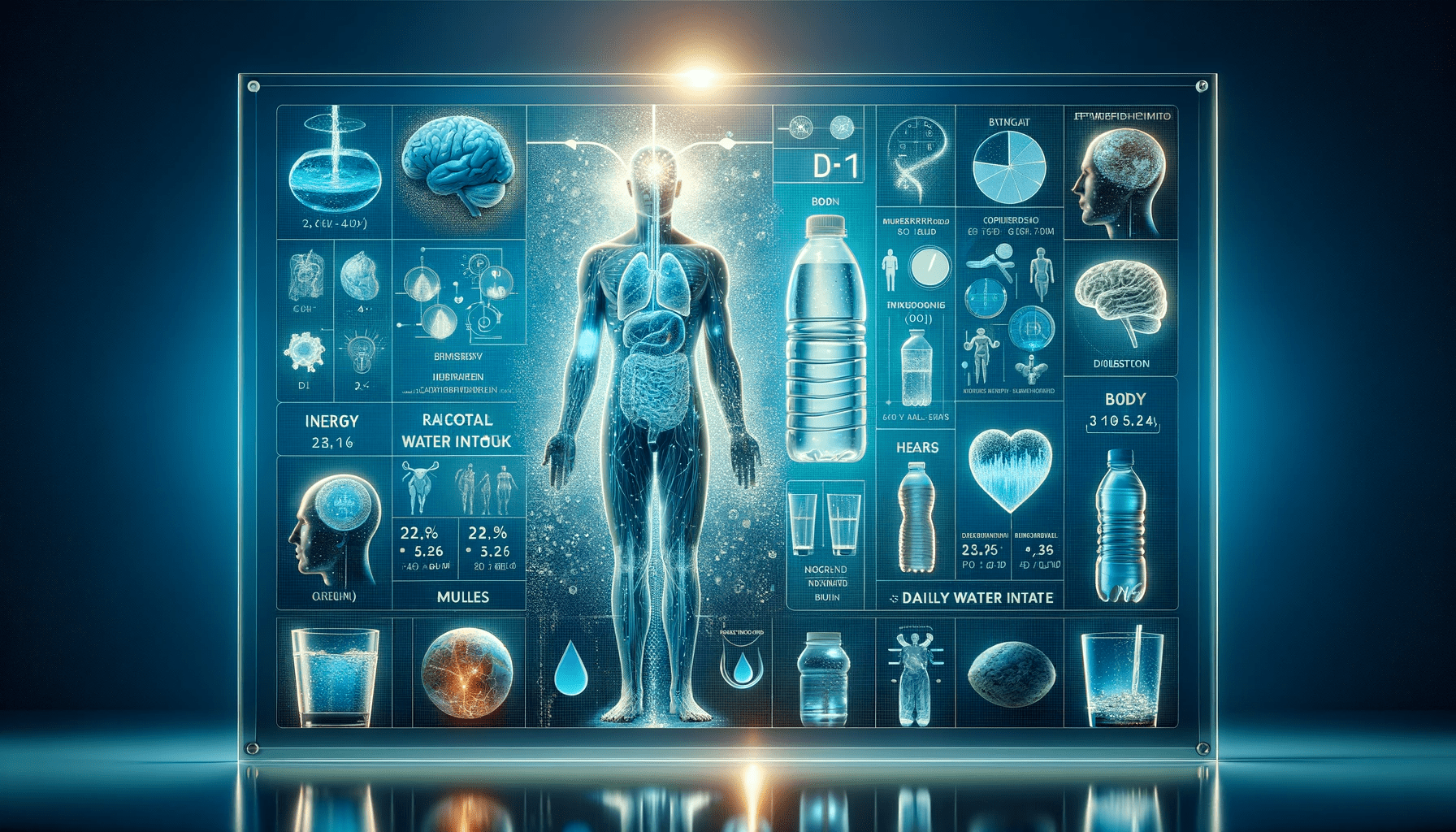Hydration plays a crucial role in maintaining good physical health. Water is essential for virtually every bodily function, including circulation, metabolism, and temperature regulation. This article explores the impact of hydration on physical health and discusses guidelines for daily water intake, drawing upon scientific evidence.
1. The Importance of Hydration in Physical Health
Water makes up about 60% of the human body and is vital for maintaining homeostasis.
- Bodily Functions: According to a study in the "Journal of Biological Chemistry," water is essential for cellular function, waste removal, nutrient transport, and biochemical reactions【1】.
- Thermoregulation: Adequate hydration is crucial for thermoregulation. Research in "Sports Medicine" shows that dehydration can impair the body’s ability to regulate temperature, especially during physical exertion【2】.
2. Hydration and Physical Performance
Hydration status can significantly impact physical performance.
- Endurance and Strength: A study in the "Journal of Athletic Training" found that even mild dehydration can impair endurance and decrease strength【3】.
- Cognitive Function: Hydration also affects cognitive function, impacting decision-making and concentration, essential for athletes and physically active individuals.
3. Hydration and Metabolic Health
Proper hydration is linked to improved metabolic health.
- Weight Management: Drinking water can aid in weight management. The "Journal of Clinical Endocrinology & Metabolism" reports that drinking water increases energy expenditure, supporting weight loss efforts【4】.
- Kidney Function: Adequate hydration supports kidney function, helping in waste excretion and toxin removal, as noted in "Kidney International"【5】.
4. How Much Water Should You Drink Daily?
Daily water intake can vary based on individual needs, environmental conditions, and levels of physical activity.
- General Guidelines: The National Academies of Sciences, Engineering, and Medicine suggest a daily water intake of about 3.7 liters for men and 2.7 liters for women, including water from all beverages and foods【6】.
- Factors Affecting Water Needs: Factors such as exercise, environment (hot or humid weather), health conditions (fever, vomiting), and pregnancy/breastfeeding can increase water needs.
5. Recognizing and Preventing Dehydration
Understanding the signs of dehydration is essential for maintaining optimal hydration.
- Signs of Dehydration: Common signs include thirst, dark-colored urine, fatigue, dizziness, and dry skin.
- Preventing Dehydration: Regularly drinking water, especially before and during physical activity and in hot climates, is crucial for preventing dehydration.
6. Sources of Hydration
While plain water is a primary source of hydration, other beverages and foods also contribute to daily water intake.
- Hydrating Foods and Beverages: Fruits and vegetables with high water content, such as cucumbers and watermelons, and beverages like herbal teas contribute to hydration.
Conclusion
Hydration is a key component of physical health, impacting everything from physical performance to metabolic function. Meeting daily water intake recommendations and recognizing individual hydration needs are essential for maintaining optimal health and well-being.
References
- Smith H.W. (1951). "The Kidney: Structure and Function in Health and Disease." Journal of Biological Chemistry.
- Sawka M.N., Montain S.J. (2000). "Fluid and electrolyte supplementation for exercise heat stress." American Journal of Clinical Nutrition.
- Judelson D.A., Maresh C.M., Anderson J.M., et al. (2007). "Hydration and muscular performance: does fluid balance affect strength, power and high-intensity endurance?" Sports Medicine.
- Boschmann M., Steiniger J., Hille U., et al. (2003). "Water-induced thermogenesis." Journal of Clinical Endocrinology & Metabolism.
- Clark W.F., Sontrop J.M., Macnab J.J., et al. (2011). "Urinary biomarkers to detect acute kidney injury in the emergency department." Kidney International.
- Medicine I.O. (2004). "Dietary Reference Intakes for Water, Potassium, Sodium, Chloride, and Sulfate." National Academies Press.
Discover the hydration section on the Amazon store : link

Leave a comment